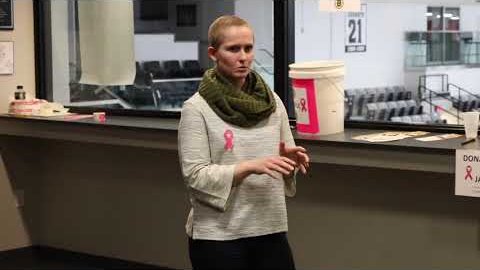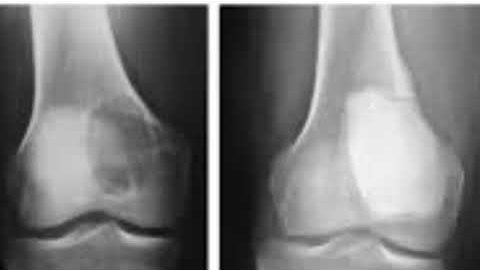Ovarian Cancer: Symptoms and Who It Affects
Dr. McDonald talks about some common symptoms of ovarian cancer and the demographic that it mostly affects. Matt McDonald, MD: Statistically speaking, the most common patients that acquire ovarian cancer are usually patients in advanced age, usually in their 60s or 70s. It is usually a disease that affects Caucasian women more frequently than other ethnic groups. Unfortunately though, what a lot of people don't know is ovarian cancer can affect really almost anyone and any age. The symptoms that women present with, with ovarian cancer are almost universally related to what we call mass effect, meaning that as the ovary enlarges, it pushes on other adjacent structures. Other structures that live in very close proximity to the ovary are the intestinal tract and urinary tract and so as an ovary enlarges, much like when women are pregnant, they will start having complaints related to those structures being compressed and what I mean by that is the bladder won't fill as much, meaning that there is a mass on the outside of the bladder pushing on the bladder and not allowing the bladder to inflate to its normal volume and what patients complain of usually is what's called a urinary urgency meaning that they are going to the bathroom or urinating more frequently than they used to. Other complaints are if the mass is pushing on the colon or the rectum and usually patients will have complaints of constipation where the mass is pushing on the colon or the rectum and not letting things evacuate as efficiently and they may start having complaints of constipation or bloated feeling where they are having a more difficult time using the restroom. Other complaints that we commonly see associated with ovarian cancer are complaints pertaining to problems of the upper abdomen around the stomach and what patients complain of there are a bad appetite or what we call early satiety, which is a physician word for they become full very quickly. They still have an appetite but they are unable to take in as much nutrition as they used to before because they gets so full so quickly. Other complaints when we see problems up around the stomach are nausea and vomiting. That commonly occurs when we see some cancers unfortunately up around the stomach and don't let the stomach evacuate as well and hence things back up in the stomach and gives patients a lot of indigestion and nausea. And interestingly what we all commonly see with women with ovarian cancer when they present is patients are really not taking a lot of nutrition because of nausea or early satiety, but a lot of times their stomach is enlarging or they are gaining some weight and usually what that is it is not real weight gain from nutrition intake, it is really weight gain from fluid building up in the abdominal cavity and the patient's abdomen expands related to that fluid. They gain some weight sometimes from that fluid, but most commonly patients will tell us that they are having a much more difficult time buttoning their blouse, buttoning their pants or their skirt, where they just don't fit anymore and they can't understand why they are having a hard time fitting into their clothes when they haven't eaten well in many, many months. Commonly we treat patients for irritable bowel syndrome, other GI complaints, and that's okay to do that for a few weeks, but if after several weeks, you are not feeling a 100% better certainly ask for some sort of imaging study whether that is an ultrasound of the abdomen or GYN structures or a CT scan to make sure that there is not something growing in the pelvis that could be related to an ovarian mass. Learn more about Dr. McDonald: http://presbyteriangyncancer.org/?id=5013&sid=123





















